For the most part, my childhood in Catholic parochial schools was a nightmare. Almost from the get-go I was a rather shy, artistic, and introverted kid. I was woefully uncoordinated and completely disinterested in the typical games other boys would play during recess. Of my earliest memories, I recall being alone a lot; occupying myself with drawing little pictures, making believe that my backyard was some faraway land, or endlessly daydreaming about being somewhere else. This unconscious inwardness made me uncomfortable around other children – I kept my face pointed downwards and continually stared at the floor. At times, I couldn’t speak. When a noise did come out of my mouth, it was usually a high-pitched and effeminate voice. Instinctively, other boys picked up on my apparent weakness and girlishness, making me the focal point of schoolyard bullying. It’s become a rather sad cliché among those who later become “gay,” I too loathed my physical education classes as I always ended up the last one picked for a team; even the girls were preferred by the athletic boy team captains. At those moments, I wanted to disintegrate into the ground beneath me. At the same time, I became obsessed with the 1939 film The Wizard of Oz and with the notion of going “Over the Rainbow.” My pitifully small circle of male friends consisted of other social rejects: a kid who was too fat, another who was too short, and a hyperactive skinny boy. As we reached puberty, our one pivotal common interest was stealing pornographic magazines from either our fathers, our older brothers, or the local convenience store. In middle school, when my friends became more fascinated with living girls than static images, I remained hopelessly stunted, for my feelings of rejection began to turn toward the boys who teased me – I wanted them to like me, more than anything.
My minuscule band of misfit brothers moved on, but I didn’t. Some girls sensed my pathetic isolation and neediness and they took a liking to me, often inviting me into their chatty lunchtime conclaves. Since their conversations involved the most popular male TV and movie stars – namely Don Johnson who I idolized – I felt right at home. And, in a sense, I became further insulated from the world of males: deeply setting within my mind that I was somehow different – not that I was a girl, but that I was also not like them and not like the other boys. After all, I was sensitive, creative, and intensely perceptive; I was better than them and I didn’t need their comradery or their friendship, but I did need just that.
Unexpectedly, the rather churlish priest at the school parish demanded, not requested, that all of the middle school boys sign up to be altar boys. The priest, an incredibly diminutive man who weighed less than a hundred pounds, exemplified the fact that true masculinity has nothing to do with physical strength or bodily proportions, but in an inner certitude and a deliberate and thoughtful courageousness that is more often unyieldingly quiet than violently bellicose. Right away, at the thought of being an altar boy, I was terrified. My parents and family were erratic attendees at Sunday Mass and, since boyhood, I always thought of the priest in the sanctuary as a sort of sacred male space. During my early years in Catholic school, this was exaggerated by the often whirling flurry of activity, overseen by the wildly gesticulating unfrocked religious sisters from our school, who, right off stage, hurriedly organized the liturgical music, lectors, and gift presenters. Women and girls performed every function at Mass, except two – they were not the priest or the altar boy. The priest and altar boys usually entered and exited from the mysterious room known as the sacristy – and that was a place I didn’t want to go. I thought I didn’t belong there and that I was not one of them.
Having no other choice, the parish priest, despite my attempts at an excuse, brow-beat me into becoming an altar boy. Instructions on the rituals, rubrics, and church etiquette were brief and usually barked rather than spoken to us; his methodology of relating commands was more akin to a drill sergeant than a man of God, but, he caught our attention and immediately gained our respect. We might not have particularly liked him, but we did as he said. Later, I will never forget getting a bit too fidgety during Mass, sitting to the side as the priest gave his homily, and without missing a syllable, he shot a look at me and I knew what to do. From then on, I sat militantly still with both of my feet flat on the floor. However, he wasn’t always gruff. My grades, which were typically terrible, suddenly improved that year, and he complimented me. Few men ever did such a thing.
During the entire training process, I was ill at ease, for beside me, were the same boys who tortured me, and these were the same boys I often unconsciously desired. Yet, despite my past loathing and longing for these boys, little was said amongst us while under the direct supervision of the delicate-looking but demanding little priest. We worked steadily, with me often following the leadership of the slightly older or more experienced boys. I liked what I was doing and I started showing up early. Then the other boys sometimes talked to me in the sacristy, albeit with hushed tones, about what we needed to do before the arrival of the priest and who should do what. I suddenly didn’t feel so alone and the other boys seemed less strange. As I got to know them they became far less attractive, and more human. I idolized them less, and the teasing, on their part, almost ceased. Then, one of the boy’s fathers invited the entire troop of altar boys on an end of the school year picnic, and when I was invited to go along, I almost died from happiness.
The following year, a new pastor arrived at the church – a bigger man, more convivial, and decidedly less scary. During Mass, things immediately changed. At a Sunday service primarily reserved for families, the new priest invited the children from the congregation into the sanctuary; under the priest’s direction, a gaggle of squirmy kids linked hands around the altar, during the “Our Father.” I found myself holding the sweaty palm of another altar boy and the hand of a girl. Back in the sacristy, before and after Mass, the altar boys were often crowded out by a throng of middle-aged female Eucharistic ministers; the priest was missing, usually bursting in at the last minute to throw on his chasuble, while the women, like an annoying and picking mother, endlessly directed our actions and took over what before was our sole responsibility, i.e. preparing the cruets and taking out the altar linens. Rather quickly, with no priest requiring our involvement and after the invasion of the women, the altar boys began to drop out. Soon, I was the only one left. The male world I longed to be part of, and was for a memorable year, vanished forever.
Afterwards, all of us moved on to high school. I never spoke again to most of the boys who I got to know while I was an altar boy, though they decidedly left me alone and never bullied or name-called. Instead, the older male students at my new school, and those I didn’t know, began to mercilessly taunt me. Again, I shrunk back into myself and fetishized my persecutors. After graduation, I literally ran to San Francisco’s gay Castro District, knowing that there, I would find the accepting all-male world of which I had never felt I belonged.
Over a decade later, when I crashed onto the sidewalk outside a gay sex club, I hobbled back to the Church, strangely enough, first heading to the same parish where I once served as an altar boy. Since then, various pastors had come and gone. The pre-Mass preparations were a scurry of activity, mainly overseen by high-heeled women whose shoes jarringly and incessantly clicked against the church’s stone-tiled floors. My heart sunk a little when the priest emerged, preceded by several altar…girls! I had no idea. What happened? In a way I wasn’t surprised, because just the day prior I had spoken to the same priest and despite my blasted and bruised body, he recommended that I return to my former gay life. Although I am sure he thought he was being incredibly charitable and sympathetic, I saw it as the ultimate rejection – that on this planet, there was no other place for me, except with gay men. After that Sunday, I walked out of the church and believed that I was walking away from Catholicism for the second and last time.
Weeks later, another priest told me about a “Latin Mass” in a nearby city. I had no idea what he was talking about, but he knew of my experiences at the local parish and that I might possibly give up on the Church. The following Sunday, having nothing else to lose, I showed up at a rather shabby and dilapidated church in a semi-sketchy part of town. When the Mass started, I was almost immediately struck by the presence of altar boys. I couldn’t believe it. There they were – the same cassock and surplice I had worn that year so long ago. I remembered back, after the arrival of the new pastor, he put us in a thin white (alb) bathrobe, telling us to tie a colored yarn rope around our waist. They were embarrassing to wear and semi-infantile and peculiarly gender-neutral. Yet, there was much that I didn’t recognize and much that confused me – the priest was facing away from us and so were the altar boys. Some were older than I remembered and some were younger, and they were all curiously kneeling in front of the altar and responding in Latin to what the priest recited. I didn’t understand.
Later, I read and I studied. I found a handy pocket-sized translation of the Latin “Tridentine” Mass and endlessly poured over every word; my favorite part, a short set of statements and responses by the priest and the altar boy that almost immediately follows the Confiteor:
P. Show us, O Lord, Thy mercy.
R. And grant us Thy salvation.
P. O Lord hear my prayer.
R. And let my cry come unto Thee.
That was what I wanted to do: to cry out to the Lord. After reading this, I immediately built up enough courage to speak with the priest after Mass. I was somewhat trepidatious, because, like the former pastor who drafted me as an altar boy, he was a short and powerful-looking man, and his sermons, though never condemnatory, were filled with admonitions about how severely humanity had gone off course. To my surprise, he was a remarkably kind and soft-spoken man. I went to Confession and he became a sort of stepfather to me, and I, his prodigal son. Then, for about a year, I huddled around him a lot, and he tolerated my presence and incessant questions. It was a special time for me, because I was reconnecting with God, the Church, with myself, and with men – but now in a very healthy way.
Usually at an inopportune time, typically during Mass when I should have been concentrating, a strange thought would enter my mind. I can’t believe I am here, I would say to myself. Just a couple of months before, I could have imagined myself anywhere – except in a Catholic church. But not just any Catholic church. When I returned to Roman Catholicism, I found myself in its arguably most conservative wing. There was almost nothing I did not do as a gay man. I lived openly as a public sinner. Yet, here, no one ever rejected me because I only asked for one thing. I did not demand the immediate removal of certain words from the Catechism. As a necessary sign of inclusion and support, I did not require the display of a rainbow flag at a special “gay” Mass. I did not call for the establishment of an LGBT-inclusive ministry. All I wanted was forgiveness. The priest recognized my sin, but he never defined me by it. Anyone could walk into a confessional. I was just another voice calling out to God for mercy. I was just another man and He heard my plea.
In a strange sort of twist, eventually I came full circle, when I was asked to be an altar boy again; this time as a server at the Latin Mass. For several weeks, I read and memorized the Latin “Ordinary of the Mass;” paying special attention to the pronunciation of the responses; then, a kindly seminarian from the same priests’ congregation – coached me on the proper stance, even my genuflections needed work, and the rubrics of the Mass. When I finally served at my first Mass, suddenly, and explicably, I returned to that initial failed seemingly insignificant moment of genuine masculinity from my boyhood. Whatever effeminacy of voice that still lingered – disappeared when I spoke the Latin, and any lilt in my walk or effervescent gestures vanished as I concentrated on serving God at His altar; in a sense, I finally became the man God created me to be.
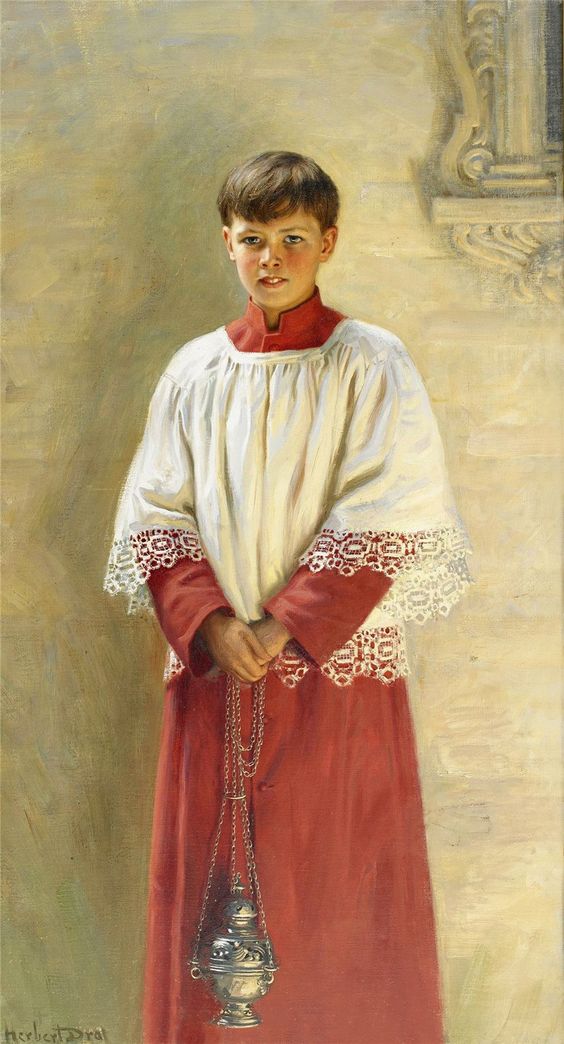
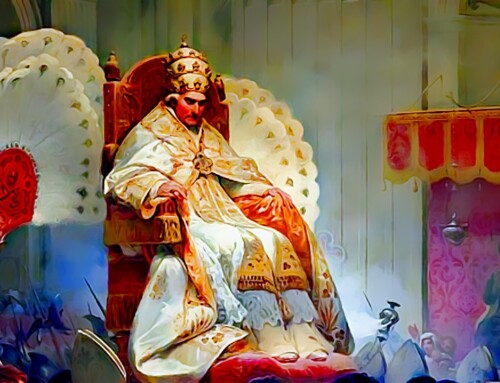
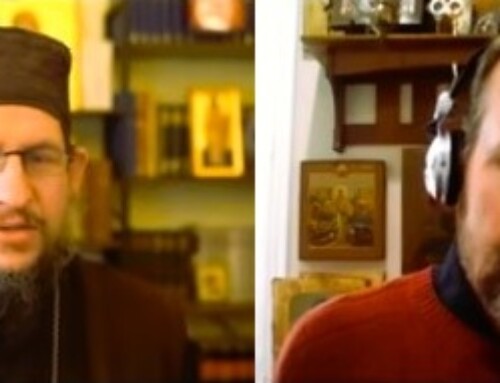
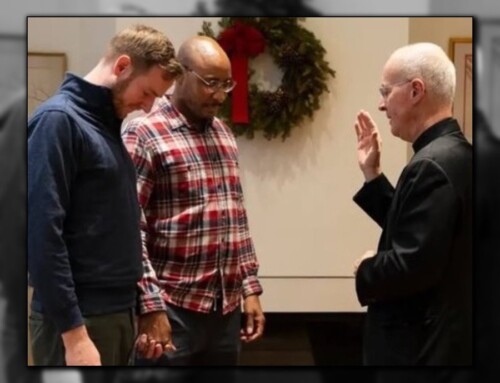
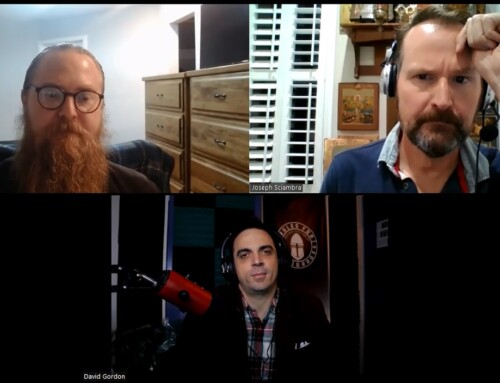
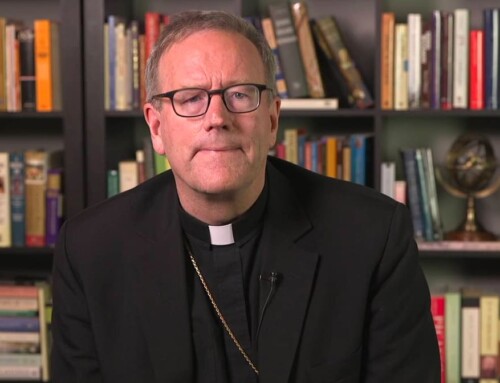
excellent story. Thank you for sharing
[…] Originally posted on Joseph Sciambra’s blog […]
Joseph, you are very strong and brave. Thank you for baring your heart for the world to see and to be transformed by your story and perspective. The world needs more people like you. May God bless you. May Jesus Christ inspire you and the Holy Spirit strengthen you. May our Blessed Mother Mary lift you up, wrap you in her mantle and comfort you. May the Holy parents of our Lord Jesus Christ, St. Mary and St. Joseph, protect and pray for you as they one day did for Him.
Thank you, brother. Keep on keeping on, in Christ! And bring as many along with you into God’s Holy Militia as possible. You are in my prayers, as well as, those who you left behind. Don’t look back. March forward in the love and compassion of Christ for Christ. Your reward will be great and ineffable in this life and in the next.
Beautiful and honest writing. Thank you.
Joseph, thank you, thank you, thank you for sharing this. I know we would be good friends. You have tapped into something very deep and very real about masculinity and linked it to the Mass in a way that this culture of today might understand. That is serious Kingdom work and I am going to have to read more of your blog. Keep pressing on! (Phil. 3:13-14)
Great job, my friend. Stay with Tradition. Pax.
I would have been one of your misfit friends that became a Marine to work out my problems at 18. Thank you for sharing this.
Thank you, Joseph, for this beautiful story that so concisely and eloquently teaches the value of tradition. Would that all Catholics would read this and understand! Our Lady of Good Success, pray for us. St Joseph, pray for us.
Thank you for allowing Christ to work through you. This is a very special piece. God bless you and please continue. You can say say the truth that many need to hear.
Wonderful and inspiring story Joseph. As a psychiatrist and traditional Catholic I would have been blessed to help you had I known you back then. Thank you for your incredible website. Keep up the saintly work.
Thank you for your courageousness. This is a truly beautiful account.
So powerful. Thank you fo sharing what so many of us have also experienced. A blessing and a treasure are your words.
Though I do not have the Catholic altar boy experience, I can relate to not fitting in with the other boys. I never hung out with the girls but I definitely did not feel part of the boys and thus as a grown male adult find myself still looking for those boy-friends to hang out with and build relationships. Finally now I understand those dynamics and victory is mine.
Your story is incredibly powerful. Thank you for Sharing it. God bless.
Joseph I am so proud of you for sharing this wonderful incredible part of your deepest hurts growing up.Thank God HE pulled you out by your booth straps.God had you in the palm of his mighty hands the entire time ,and you followed HIS lead.God Bless you on your journey
Beautiful writing. Thank you so much for sharing your story. God bless you 🙏🏻
Thank you for this beautiful piece! The loneliness of a man, so powerful!